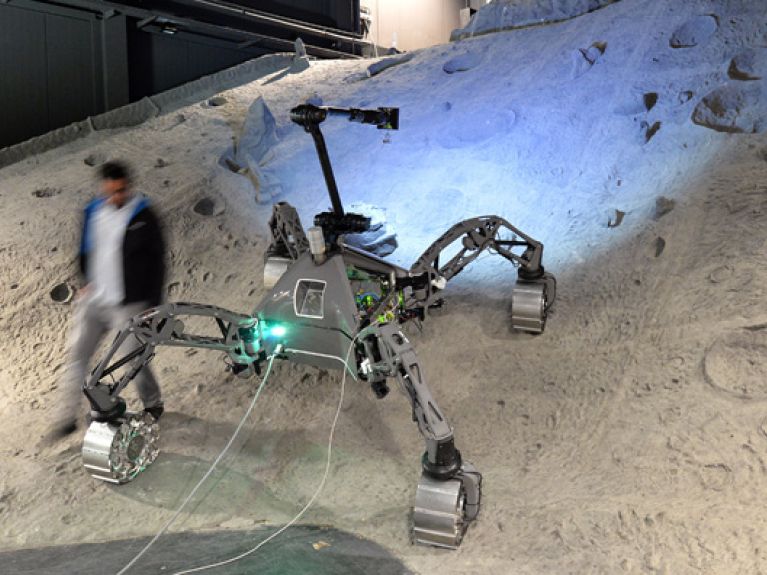The German Research Center for Artificial Intelligence
Scientists at the German Research Center for Artificial Intelligence have helped set a revolution in motion with their self-learning computers.

Hours spent hunting for a parking space? That was yesterday. “Smart Parking”, a mobility concept presented at Germany’s 10th National IT Summit, is designed to make finding a parking space easier, while at the same time reducing the volume of traffic in inner cities. An app with access to integrated services provides the user with a forecast of the parking situation. This software solution was developed within the framework of a joint project run by the German Research Center for Artificial Intelligence (DFKI) in cooperation with partners from industry and research.
Intelligent mobility solutions are one key research focus of the DFKI, which was established in 1988. Be it robot control, language technology, intelligent networks or augmented reality, there is hardly any field of technology that is not covered by its 800 or so scientists from more than 60 countries. The 180 different research projects have one thing in common: computers and artificial intelligence play a central role in all of them. DFKI researchers have long been experimenting with what are known as neural networks – mathematical filters connected in series. Computers sift through data, which allows them to identify patterns. The self-learning and intelligent programs recognise visual content, understand language and can assess emotions in social networks.
Google has long been interested in the DFKI
With their technology that teaches computers how to think, DFKI Director Wolfgang Wahlster and his team have helped set nothing short of a revolution in motion. These days, major international corporations like Google are courting the DFKI, which has facilities in Kaiserslautern, Saarbrücken, Bremen and Berlin. Google has invested millions of euros and is one of 24 industry partners with a share in the DFKI.
In the new “Living Lab Smart Office Space”, researchers at Technische Universität Kaiserslautern and the DFKI are currently exploring how the office of the future might look. Close collaboration between the DFKI and its partners in science and industry allow pure and applied research to be combined and ideas to be put directly into practice. After the successful launch of two Living Labs – the “Smart Factory” and the “Smart City” – Wolfgang Wahlster is also confident that the new research lab will produce some “very tangible innovation”.

